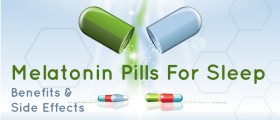Information on Cortisone
Cortisone is a hormone normally produced by the adrenal glands inside the human body, but it is also produced in a synthetic manner and it is sold in most well equipped pharmacies as a medicament for various different sorts of inflammatory conditions. Cortisone is actually a steroid just like all of its derivatives and it is one of the most potent anti inflammatory medicaments known to man. Cortisone is very efficient in relieving all the symptoms which are commonly associated with inflammatory conditions and those include tenderness, warmth, painful sensations and swelling. One must always take cortisone in fairly low levels, and the course of the treatment should never be stopped suddenly if the medication is taken for more than four consecutive weeks. During this period, the adrenaline glands get smaller to a certain degree, which also leads to a decreased production of cortisone in the human body. A slow reduction of medication allows the adrenal glands to gradually increase their production of natural cortisone. Most steroids are usually taken in the form of intra muscular injections or pills. Some of them can also be injected directly into the patient’s vein. There is also a certain type of treatment called pulse steroid treatment which involves the usage of very large doses of steroids over a fairly short period of time.
Side Effects of Cortisone
Cortisone can sometimes be associated with the occurrence of certain types of side effects. Sometimes it triggers elevated blood pressure and menstrual cycle disturbances. Prolonged use of cortisone may be associated with certain appearance oriented side effects such as weight gain, increased appetite, moon shaped face, round shaped face and acne. Swollen abdomen, swollen face, thin legs and thin arms may result from redistribution of fat triggered by prolonged use of steroids. Skin may also become excessively fragile which may be associated with easy bruising and unusual bleeding. Cortisone may also be associated with certain psychological side effects such as mood changes, insomnia, depression, euphoria, agitation, irritability and other similar emotional problems. High doses of cortisone may also be affiliated with increased susceptibility to various different types of infections and aggravated instances of high blood pressure, glaucoma and diabetes. All different types of steroids are also very often responsible for the increased levels of triglyceride and bad cholesterol in the blood. Certain other side effects of prolonged use of cortisone may or may not include cataracts, muscle weakness, avascular necrosis of bones, osteoporosis, hip pain, shoulder pain, knee pain and an abnormal MRI scan.

















Your thoughts on this
Loading...